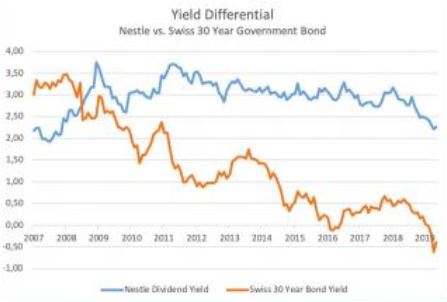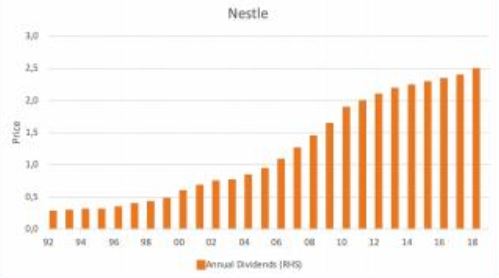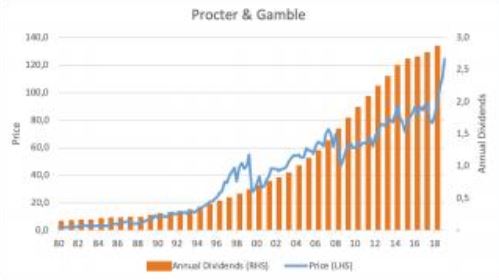Investment Implications - Negative Global Interest Rates
The yield of a country's 10-year government bond provides important insight into its economic prospects. Above-average yields on the debt of reliable borrowers typically represent an expectation of above-average inflation and strong GDP growth. Very low yields imply the opposite.
Twenty years ago, over half of the global bond market boasted yields in excess of 5%. Today, only 3% are still able to offer those kinds of yields, and as much as a quarter of the global bond market are offering negative yields, and as much as a quarter of the global Bond market are offering negative yields. In Germany, yields are negative all the way from cash deposits to 30-year bonds. In Switzerland, negative yields extend all the way out to 50 years. The message from the bond market is clear – investors need to consider the investment implications of a prolonged period of low inflation and weak global growth.
Investment Implication No 1: Dividends will become increasingly sought-after
With cash and bonds offering investors very little in the way of yield, investors are likely to turn to dividend-paying equities for income. The chart below highlights the yield differential between Nestlé (a Swiss multi-national) and the Swiss 30-year government bond.

The current 2.6% yield differential is unusually high and unlikely to persist, considering both investments pay out income in Swiss Francs and exhibit similar levels of price volatility. This presents downside risk to bond investors, and upside potential for dividend investors.
Investment Implication No 2: Prefer defensives over Cyclicals
Companies that produce goods and services that consumers can’t go without sacrificing volumes, even when times are tough. As such, a low growth environment favours businesses operating in ‘defensive’ industries (such as food, beverages and healthcare) over more cyclical companies like resource and energy stocks.
The chart below highlights how Nestlé has been able to consistently increase its dividends thoughout the various economic cycles, including the great recession of 2008/9.

Investment Implication No 3: Quality is Key
A company's brand, business model and balance sheet are all put to the test when economic growth is subdued. Based on our experience, the businesses that tend to come out on top have the following qualities:
- Size and scale
- Market-leading brands
- Geographic diversification
- Low debt levels
- High, free cashflow
Coca-Cola, for instance, is the market leader in multiple non-alcoholic beverage categories, generates sales in 180+ different countries, boasts a market cap of over $200bn, and has an A1 credit rating – qualities that have helped underpin 57 consecutive dividend increases.
Best place to be Invested
The investment implications of a prolonged period of low inflation and weak global growth suggests that the world’s best dividend-paying investments are likely to serve investors best in the years ahead. Not only are the dividends yields of high-quality companies like Nestlé and Coca-Cola significantly higher than bond yields, ‘defensive’ products and strong balance sheets suggest they will continue to increase dividends despite tough conditions. The chart below highlights the relationship between dividends and capital growth over the long term.

Reliable dividend growth and an acceptable yield to re-invest should ensure inflation-beating returns from these investments in a world of negative interest rates.
Courtesy: Duggan Matthews – Chief Investment Officer - Marriott







